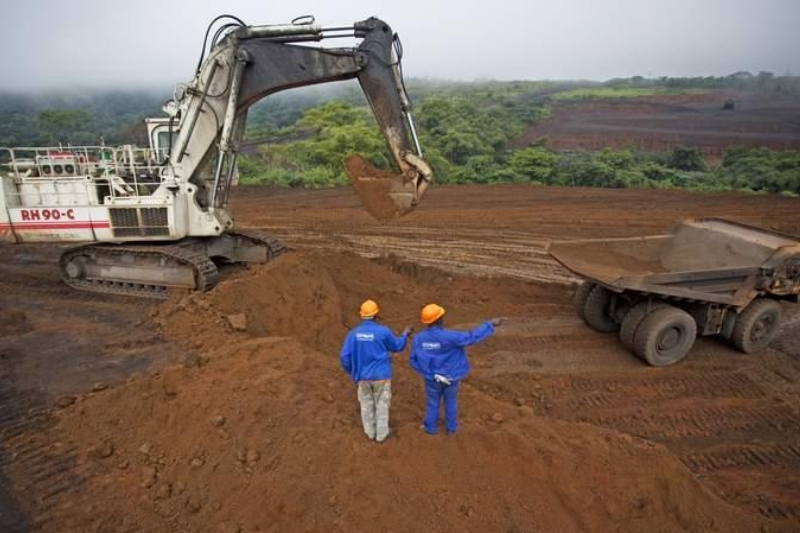Comilog, the global leader in manganese production, has long faced criticism for its practice of dumping manganese sludge and residues into a river. However, the company has made significant efforts to address these concerns by implementing less polluting modern laundries and investing in social services in the town of Moanda, located in southeastern Gabon.
Under the supervision of Operating Manager Jean-Baptiste Nzeng Eyi, Comilog’s new laundries have become a crucial step forward in the fight against pollution. The laundries employ vast tanks of water that act as decanters, separating solid and liquid waste. This process ensures that nothing is lost, and everything is transformed and valued.
After the manganese cleaning process, all sludge and wastewater are directed to other ponds for treatment. Nzeng Eyi explains that the sludge is now deposited in industrial basins, which helps eliminate open holes left after manganese extraction. Comilog’s vision is to restore the ecosystem to its natural state by adding topsoil to the industrial basins once exploitation is complete.
Keep Reading
While Comilog’s efforts to secure mining residues are commendable, Nicaise Moulombi, the president of the Gabonese NGO Croissance Saine Environnement, remains cautious. Moulombi highlights the need for scientific evidence from Comilog to assess the effectiveness of their measures and ensure the protection of the water table and prevent any potential infiltrations.
However, Comilog continues to face criticism on a social level. As it prepares to exploit a new area, the company plans to relocate the affected populations. In compensation, Comilog has built a new city consisting of 417 houses. Unfortunately, many beneficiaries are dissatisfied with the quality of the houses, citing concerns about landslides and erosion in the surrounding area. Gaétan Ayami, president of the collective of future displaced residents, points out that Comilog initially identified over 600 houses, but only 417 have been completed thus far.
Comilog’s Managing Director, Leod Paul Batolo, defends the project cost of 19 billion CFA francs, emphasizing that the company is proud to offer a modern city that improves living conditions, access to water, and access to electricity for the local population.
From the perspective of the Gabonese government, a shareholder with a nearly 30% stake in Comilog, the company’s investments are seen as a win-win public-private partnership. Comilog’s operations provide employment to approximately 10,500 people in the country, predominantly Gabonese citizens.
Despite the progress made by Comilog in addressing pollution and investing in social services, ongoing monitoring and transparency are crucial to ensure the company’s commitment to sustainable practices and the well-being of local communities.

